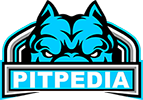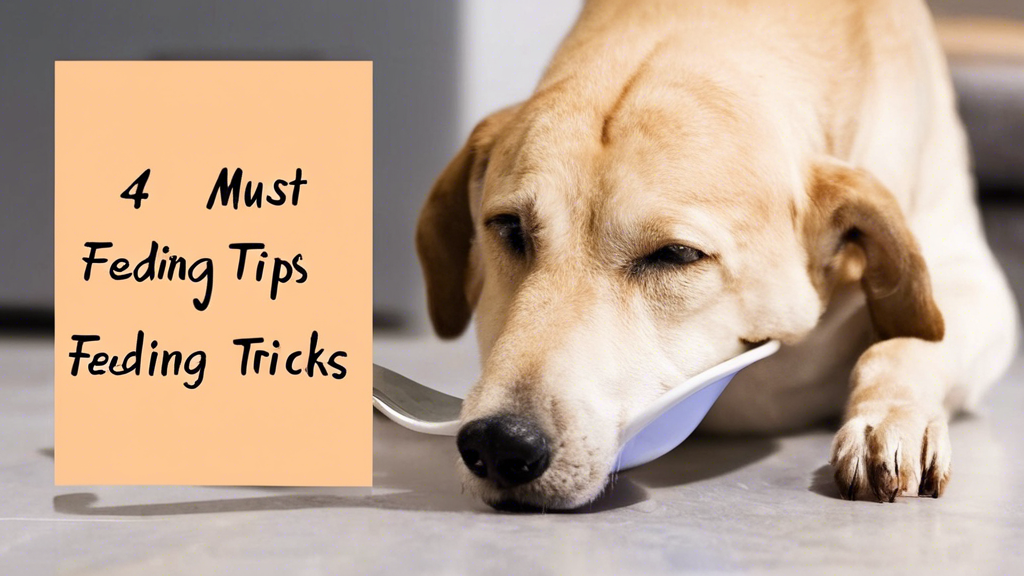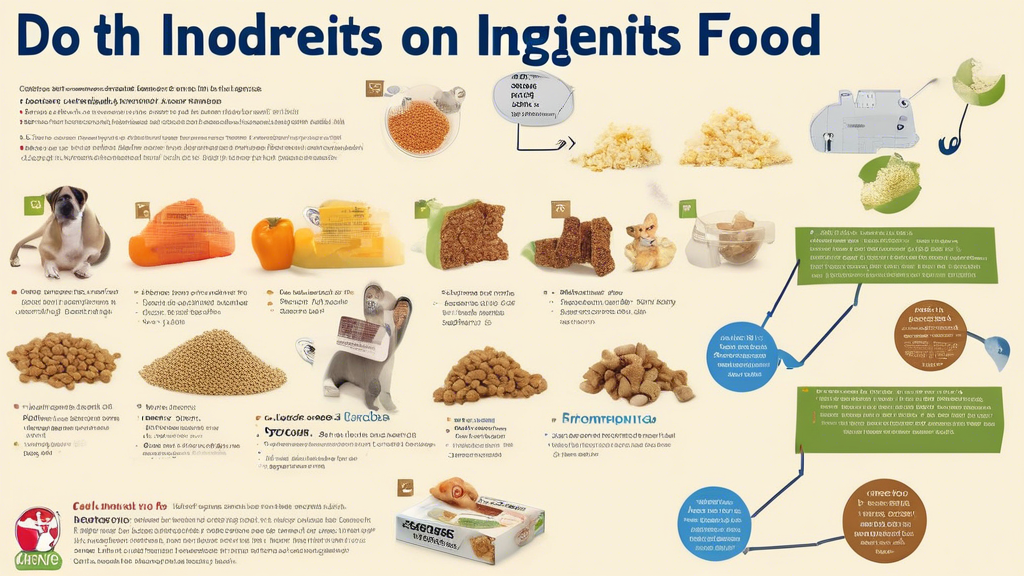“`html
4 Must-Read Feeding Tips and Tricks for Dog Owners
As responsible dog owners, providing our furry companions with optimal nutrition is paramount. This article delves into four essential tips and tricks to ensure your dog receives a wholesome and balanced diet, promoting their health and well-being.
Feeding Dogs a Nutrient-Rich Diet
Dogs thrive on a diet that meets their specific nutritional needs. Understanding the importance of a balanced diet will empower you to make informed decisions about your dog’s food choices.
Establishing a Regular Feeding Schedule and Portion Control
Consistency and moderation are key when it comes to feeding your dog. This section emphasizes the benefits of setting regular mealtimes and measuring portions to avoid the pitfalls of overfeeding and underfeeding.
“`
1. Importance of Feeding Dogs a Nutrient-Rich Diet
Maintaining a healthy and happy canine companion requires providing them with a balanced and nutritious diet. Dogs, like humans, have specific dietary needs that must be met to ensure their optimal well-being.
Essential Nutrients for Dogs:
- Protein: Essential for building and repairing tissues, muscles, and organs.
- Fats: Provide energy, support cell function, and aid in nutrient absorption.
- Carbohydrates: Break down into glucose, the primary energy source for dogs.
- Vitamins: Essential for various bodily functions, including metabolism, immune system support, and healthy skin and coat.
- Minerals: Support bone health, muscle function, and electrolyte balance.
Benefits of a Nutrient-Rich Diet:
- Improved Health: A balanced diet reduces the risk of chronic diseases such as obesity, heart disease, and cancer.
- Increased Energy Levels: Proper nutrition provides sustained energy throughout the day.
- Longevity: Dogs fed a healthy diet tend to live longer, healthier lives.
Selecting High-Quality Dog Food:
Not all dog food is created equal. When choosing a diet for your furry friend, carefully consider the following factors:
- Ingredients: Look for dog food with whole, recognizable ingredients, such as meat, vegetables, and fruits.
- Nutritional Content: Ensure the food provides the necessary balance of protein, fats, carbohydrates, vitamins, and minerals for your dog’s age, breed, and activity level.
- AAFCO Statement: The Association of American Feed Control Officials (AAFCO) establishes nutrient adequacy standards. Choose dog food that meets AAFCO requirements.
The #1 Free Source for Pitbull & Bully Pedigrees!

Establishing a Regular Feeding Schedule and Portion Control
Maintaining a consistent feeding schedule and controlling portion sizes are crucial for optimal canine health. By adhering to these guidelines, pet owners can avoid detrimental effects such as obesity, malnutrition, and digestive disorders.
Regular Mealtimes
Dogs thrive on routine, so establishing regular mealtimes helps regulate their digestive system and metabolism. Aim to feed your dog twice daily, around the same time each day. This predictability provides comfort and stability for your furry companion.
Measuring Portions
Overfeeding and underfeeding can have severe consequences for dogs’ well-being. Use a measuring cup or scoop to ensure accurate portions that meet your dog’s specific calorie needs.
Calorie Requirements
Calorie requirements vary widely among dogs based on several factors, including:
- Breed
- Size
- Activity level
- Age
Consult with your veterinarian to determine the appropriate calorie intake for your dog based on these variables.
Consequences of Overfeeding
Overfeeding can lead to:
- Obesity
- Joint problems
- Heart disease
- Diabetes
Consequences of Underfeeding
Underfeeding can result in:
- Malnutrition
- Muscle loss
- Lethargy
- Skin and coat problems
Tips for Portion Control
To ensure proper portion control:
- Weigh your dog regularly to monitor their weight.
- Adjust portions based on weight changes.
- Consider the calorie content of treats and adjust meal portions accordingly.
- Avoid free-feeding, as dogs tend to overeat when food is constantly available.
By establishing a regular feeding schedule and practicing portion control, you can help your dog maintain a healthy weight, prevent digestive issues, and promote overall well-being.
**Conclusion**
In conclusion, adhering to these feeding tips and tricks is crucial for ensuring the well-being of your canine companion. By prioritizing a nutrient-rich diet, establishing a regular feeding schedule, and exercising portion control, you can promote optimal health and happiness for your beloved dog. Remember that understanding your dog’s specific nutritional needs is paramount, and consulting with a veterinarian or certified pet nutritionist can provide valuable guidance in creating a personalized feeding plan tailored to their unique requirements. By investing in your dog’s nutrition, you are investing in their overall well-being and enriching their life with years of companionship, love, and unwavering loyalty.











Leave A Comment